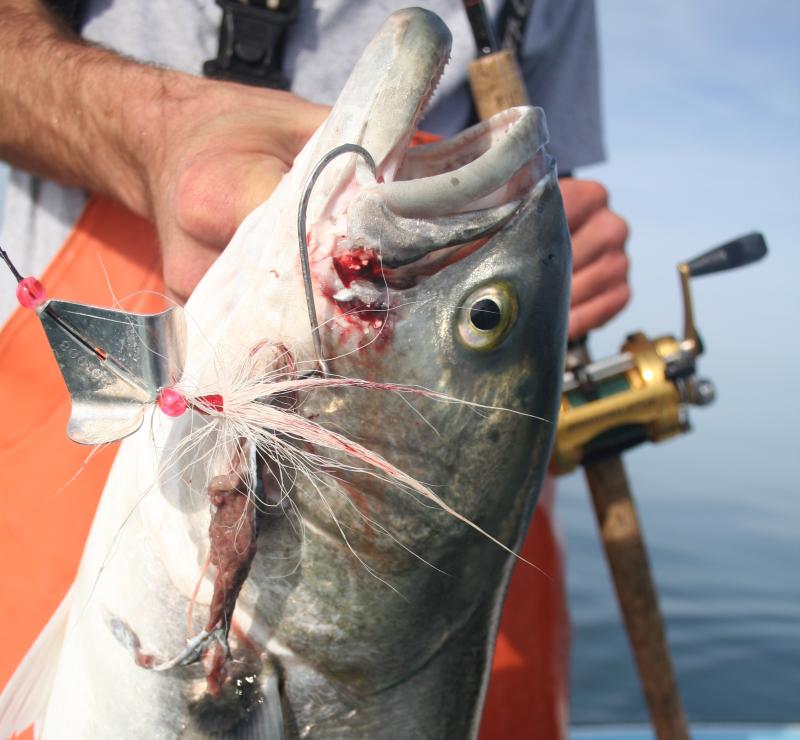Pay attention to management plans
Last week we spoke about how to get involved in the management of the fish we saltwater recreational fishermen and women enjoy catching. As I finished writing that article, I received the Public Information/Scoping Document for the Recreational Sector Separation and Data Collection Amendment. It is described as an omnibus amendment to the summer flounder, scup and black sea bass, and the bluefish fishery management plans. If you enjoy catching any of the above species, you need to pay attention.
As mentioned in a previous article, the sector separation plan would cut out the for-hire section of the recreational fishery and treat them as a separate entity. My fear is that the for-hire sector would take away fish from the rest of us, as they have done with bluefish and blueline tilefish. And sure enough, on page 4 of the document is a paragraph titled Separate Allocations For Each Sector.
The document goes on to explain how the division of the fish could take place, but no matter how you slice the loaf, I feel certain recreational fishermen who fish from shore or from their own boats will take a beating. Of course, if you own a for-hire business or only fish from head or charter boats, this sounds like a good deal. I ran Ebb Tide Guide Service for 11 years out of Virginia Beach and Indian River. Currently, since I gave my 16-foot tin boat to my son Roger, I fish from head boats, but I still believe that a recreational fisherman is a recreational fisherman no matter where they are standing when they catch a fish. The same seasons, size and bag limits should apply equally across the board.
The second issue in the scoping document is Recreational Data Collection. This is a subject near and dear to my heart.
Right now, the primary source of data used by fishery managers is the MRIP. The Marine Recreational Information Program, according to the scoping document, has very little confidence among the recreational fishing community. By my experience, very little is a large exaggeration.
I have been pushing for having each fisherman or woman who has a cellphone, laptop or desktop computer fill out a very simple form at the end of each fishing trip. Those who have a cellphone would have the best information because they can record their data as soon as they return from the trip while the experience is still fresh in their mind. From what I observe in the general public, I believe almost everyone today has a cellphone, so the data would be pretty accurate.
The form should have the date, location, time of departure, time fishing began, time fishing ended and time returned to dock plus fish retained, fish released. Those shore fishing would record time arrived at the beach, inlet or river bank.
Some of the complaints I have heard about this system is there will be a few anglers who will not fill out the form no matter how simple you make it. I am sure that is true. Also, some anglers will lie. That is also a possibility. I am certain those types will be few and far between, and the folks who make up the program can work in something to compensate for that situation.
Even with a few bad apples in the bunch, the data has to be better than what we have under the current system. The one word that kept coming up during my week at the seminar in Falmouth, Mass., was “uncertainty.” If they can deal with the mass uncertainty we have now, the small amount that comes from a few liars and holdouts should not be a problem.
For-hire operators must report an electronic vessel trip reporting document for each fishing trip within 48 hours of trip completion. They must have a federal license to fish in federal waters, and that license would be in jeopardy if the reports are not completed.
There will be a series of public hearings where comments will be taken on both possible amendments. The hearing for Delaware will be virtual and held from 6 to 8 p.m., Thursday, March 4. You may also send your written email comments to kdancy@mafmc.org. Should you decide to write a letter, address it to Dr. Chris Moore, Executive Director, Mid-Atlantic Fishery Management Council, 800 North State St., Suite 201, Dover, DE 19901.
You can and should see and read a copy of the scoping document by going to the Mid-Atlantic Fishery Management Council website (mafmc.org), where the second or third subject down is the scoping document. Click on that, and you can read it online or print it to use as a reference while you write your comments.



























































